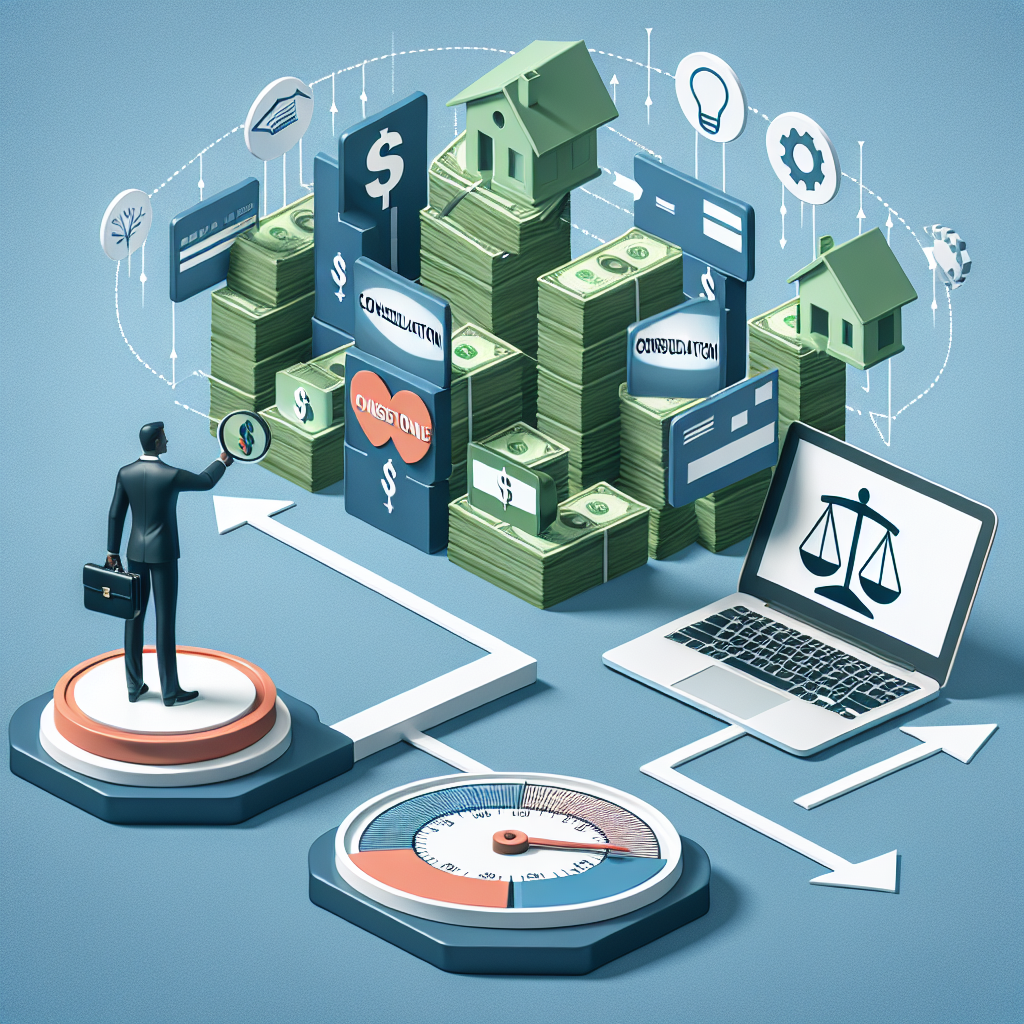Understanding Debt Consolidation Loans
If you're feeling overwhelmed by multiple debts and high interest rates, it may be time to consider the benefits of debt consolidation loans. By combining all of your debts into one loan, you can simplify your financial management and potentially lower your interest rates. Whether you choose to take out a personal loan or transfer your debt to a balance transfer credit card, understanding the workings of debt consolidation can lead you towards a more stable and stress-free financial future.

This image is property of images.pexels.com.
How Debt Consolidation Works
Debt consolidation is a financial strategy that can help you manage your debt more effectively. It involves combining multiple debts into a single loan, making it easier to keep track of your payments and potentially lowering your interest rates. There are several ways to consolidate your debt, and each method has its own benefits and considerations.
Benefits of Debt Consolidation Loans
Consolidating your debt can offer a range of benefits that can help improve your financial situation. Here are some of the advantages of debt consolidation loans:
-
Simplifies debt management: Having multiple debts can be overwhelming and confusing to keep track of. By consolidating your debts into a single loan, you only need to make one payment each month, which can simplify your financial management and help you stay organized.
-
Potentially lowers interest rates: One of the main reasons people choose debt consolidation is to reduce their interest rates. If you have high-interest credit card debts, for example, consolidating them with a lower interest rate loan can save you money on interest charges over time.
-
Reduces monthly payments: Consolidating your debt can also help lower your monthly payments. By stretching out your repayment period or securing a lower interest rate, you may be able to reduce the amount you owe each month, making it more manageable for your budget.
-
Improves credit score: If you have multiple debts with high utilization rates on your credit cards, it can negatively impact your credit score. By consolidating your debts and reducing your credit card utilization, you can improve your credit score over time.

This image is property of images.pexels.com.
Types of Debt Consolidation Loans
When it comes to debt consolidation, there are various types of loans you can consider. Here are six common options to explore:
1. Personal Loans
A personal loan is a popular choice for debt consolidation. You can borrow a lump sum from a bank, credit union, or online lender, and then use that amount to pay off your existing debts. Personal loans typically have fixed interest rates and fixed repayment terms, making it easier to budget and plan for your monthly payments.
2. Balance Transfer Credit Cards
If you have high-interest credit card debt, transferring your balances to a credit card with a low introductory interest rate can be a smart move. Many credit card companies offer promotional rates, such as 0% APR for a certain period of time, which can help you save on interest charges and pay off your debt more quickly.
3. Home Equity Loans
If you're a homeowner, you may be able to tap into your home's equity through a home equity loan or a home equity line of credit (HELOC) to consolidate your debt. These loans typically have lower interest rates because they are secured by your property. However, it's important to keep in mind that using your home as collateral means that it's at risk if you're unable to repay the loan.
4. Debt Management Plans
Debt management plans (DMPs) are offered by credit counseling agencies. With a DMP, you make monthly payments to the agency, and they distribute the funds to your creditors on your behalf. This can help you simplify your debt repayment process and negotiate lower interest rates or waived fees with your creditors.
5. Peer-to-Peer Lending
Peer-to-peer lending platforms connect borrowers with individual investors who are willing to lend money. These platforms can be a good option for debt consolidation if you have fair or good credit. They often offer competitive interest rates and flexible repayment terms, making them an attractive alternative to traditional lenders.
6. Retirement Account Loans
While not recommended for everyone, borrowing from your retirement account can be a viable option for debt consolidation. 401(k) loans or borrowing against your individual retirement account (IRA) may offer low interest rates and flexible repayment options. However, it's important to consider the potential impact on your retirement savings and the potential tax implications of early withdrawals.

This image is property of images.pexels.com.
Conclusion
Debt consolidation can be a helpful strategy for managing your debt more effectively. Whether you choose a personal loan, a balance transfer credit card, a home equity loan, a debt management plan, peer-to-peer lending, or a retirement account loan, it's important to carefully consider your financial situation and goals before deciding on the best option for you. By consolidating your debts, you can simplify your payments, potentially lower your interest rates, reduce your monthly payments, and improve your overall financial well-being. Remember to seek professional advice if you have any doubts or questions about debt consolidation options. Take control of your finances and embark on your journey to becoming debt-free.

Comments
Post a Comment